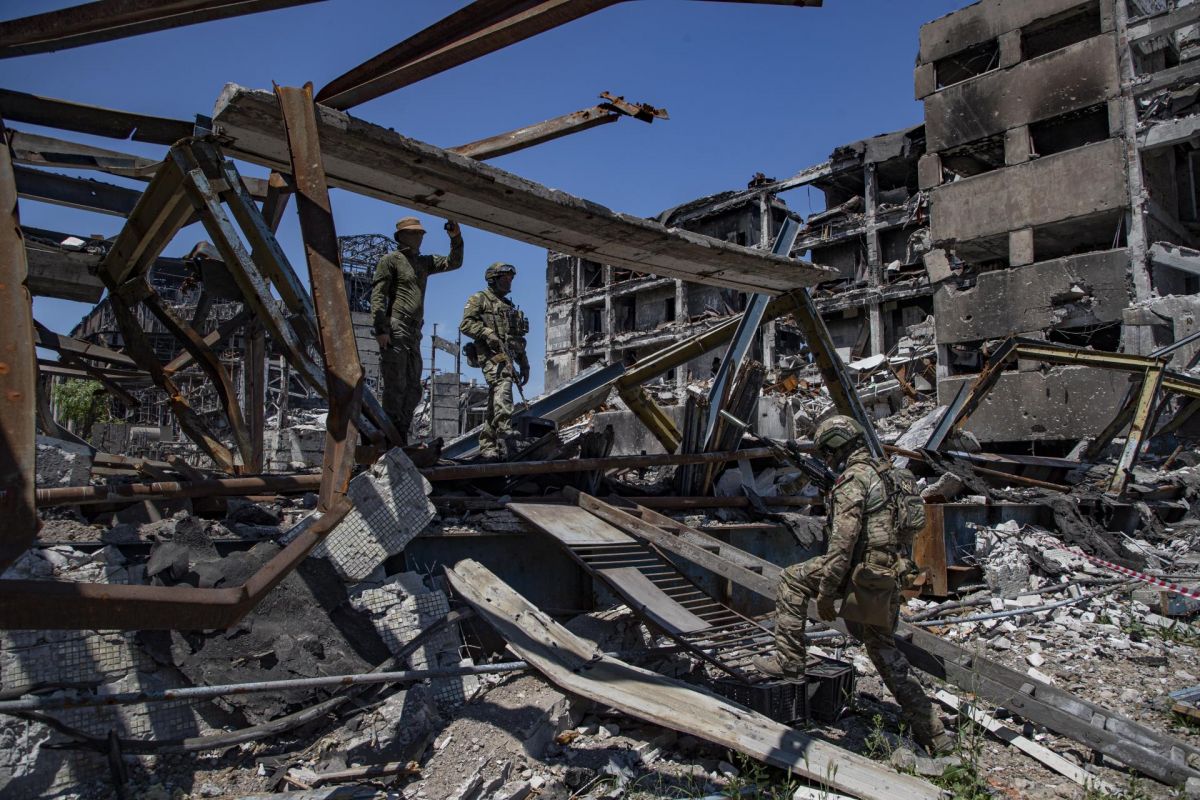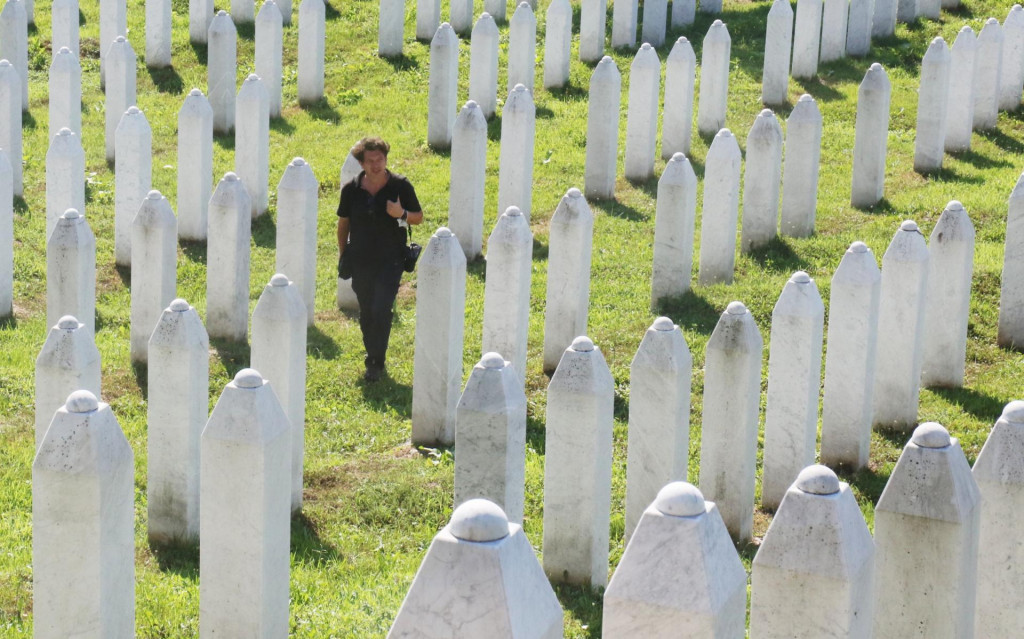Written by: Academician, prof. Ph.D. Arne Johan Vetlesen, University of Oslo and Zemir Popovac, psychologist, expert in practice
Surprisingly few experts and commentators have pointed out the similarities between what is happening now in Ukraine and what happened in the Balkans thirty years ago under the name of "ethnic cleansing". There are good reasons to look more closely at the parallels we are dealing with, to understand why the Russian aggressors are treating the civilian population the way they do, and to establish the basis for a court settlement and possible reconciliation when the ongoing war is one day over.
Markale and Kharkiv
First a bit of history. After the March 1992 referendum, when 64.31% of Bosnians voted for the independence of Bosnia and Herzegovina, Serbian nationalist separatists, supported by the Yugoslav army and the Serbian nationalist regime of Slobodan Milošević in Serbia, went to war against Bosnian multiculturalism. By claiming that the Serbian people were threatened with extinction, they exposed the Bosnian civilian population to the greatest war crimes committed on European soil since the Second World War, thus transforming their own aggression into an alleged necessary defense. The long-built and prepared Serbian nationalist propaganda machine played a key role. In order to include as wide a circle as possible of the Serbian people, Serbian nationalists played on two needs of their own people: the need for defense against a fictitious threat ("Serbian people and Serbian culture are in danger") and secondly, the need for the dream of re-establishing a great Serbia .
The relationship with Putin's propaganda and his waging of war against Ukraine is striking: "The Russian people in Ukraine are in danger of destruction and must be saved. Ukraine is an artificial and unsustainable country, Ukraine is a product of the former Soviet Union, where it basically always belonged". The very course of the war in Ukraine, we now see, is the same as it was in Bosnia: violation of international law, violation of state sovereignty and war crimes against the civilian population.
What is it? Boris Johnson compared the bombing of Bosnian civilians in the Markale market in Sarajevo, where Serbian nationalists killed 105 and wounded 234 people in two bombings, with Putin's bombing of civilians in Kharkiv. We also saw gruesome images of civilians being shot on the streets of Bucha, as well as the rocket attack on the railway station in Kramatorsk, where 57 civilians, including children, were killed. The comparison Johnson makes is correct, but the similarity extends beyond the fact that civilians were killed. It also includes content on how the perpetrators themselves explain these crimes, both at home and in the world public. Serbian nationalists accused the Bosnian Army of bombing their own people, all with the aim of winning the sympathy of the West and the support of NATO. Putin's propaganda machine similarly blames the Ukrainians who "either killed their own, or made actors act like killed and wounded civilians" ‒ in order to smear the Russians and gain NATO support.
News pictures from Ukraine in recent weeks have been marked by reports of mass rapes of Ukrainian women, destruction of Ukrainian cultural heritage and new discoveries of mass graves. Between 20,000 and 50,000 Bosnian women were raped during the war in Bosnia. The exact number is difficult to determine because it is estimated that for every registered rape there are 15-20 unregistered cases. The destruction of Bosnia and Herzegovina's cultural heritage was a goal in itself; 1,400 buildings of Islamic architecture and culture were razed to the ground and turned into parking lots as if they never existed. Many of the killed and missing civilians have not yet been identified. Nevertheless, almost thirty years after the war in Bosnia, new mass graves are being unearthed. The job is complicated by the fact that the criminals moved the bodies from the original crime scene to the so-called secondary and tertiary graves. Dismembered parts of the body were found in different places several tens of kilometers apart. All this made exhumation and identification difficult, as well as the prosecution of the perpetrators of these crimes.

The similarities between the abuse of the civilian population in Ukraine and Bosnia and Herzegovina are not only in the fact that these are targeted and planned acts, but also in the fact that the crimes committed are denied by those who committed them, both in real time and in retrospect. The genocide in Srebrenica, in which 8,372 boys and men were systematically executed over the course of several days in July 1995, is still denied by Serbian nationalists. Even the Bosnian Serb political elite refuses to use the word "genocide". To use that word and accept the fact that what happened in Srebrenica is true is considered a form of personal betrayal, as well as betrayal of national interests. The refusal to participate in the denial and relativization of the genocide in Srebrenica is paid dearly by every individual in the Serbian corps. Despite convincing verdicts supported by extensive evidence of the International Criminal Court in The Hague, genocide denial continues and becomes a form of test of solidarity with one's own group, and often with one's own family members (father, brother, cousin). Denial is just one of the key words, revising history is something else. It's one thing to say "that didn't happen", and it's another to claim that the torture, rape, killing, wounding and expulsion of helpless women and children are heroic deeds that deserve praise and admiration.
While much of the world condemns the killings of Ukrainian civilians in Bucha, Putin pays tribute to Russian soldiers for "their great heroism, courage and perseverance". Serbian nationalists in the Balkans name streets, parks and public institutions after convicted war criminals. This particularly applies to Radovan Karadžić and Ratko Mladić, who were found guilty of genocide and sentenced to life imprisonment. There is no room for critical thinking in comparing Putin and Serbian nationalists. Serbian nationalists interpret the judgments of the International Criminal Court in The Hague as additional evidence that the West is against the Serbs. Sanctions against Russia are interpreted by Putin and his supporters as evidence of anti-Russian mood. Both Putin's narrative and the narrative of Serbian nationalists draw their power from paranoia, which, according to them, has its refuge in the West in the first case, and in the neighbors in the second case.
For now, we know relatively little about how the attacks on Bucha, Irpin and Mariupol were prepared on the Russian side. Have the soldiers been given the freedom to rape and kill as they wish? Or do the crimes take place according to a careful plan and instructions? In light of what happened in Bosnia, there is no reason to believe that the soldiers acted "spontaneously" and in their own name. Admittedly, some of the rapes were opportunistic, but as Anne Bitsch writes in Klassekampen, they fulfilled certain expectations about "masculinity", to be "next in line". So the individual soldier has a greater fear of negative sanctions for refusing to participate than for what he did, because what is offered is recognition from the other guys, not prosecution.
Rape in front of witnesses
The rape of "enemy" women and girls is also of great strategic importance. Rape means the absolute power, possibility and freedom of the aggressor to do exactly what he wants with the civilian population. As soon as a town or village is occupied. In Bosnia, murders and rapes were organized and carried out publicly, and relatives of the victims were forced to witness these acts. In this way, direct victims and witnesses were exposed to maximum humiliation and a feeling of powerlessness, and were completely left at the mercy of the aggressor's intentions. In short, it was an act of inflicting trauma that should last a lifetime for the victims and their families. Trauma in which the houses and apartments of the victims will be forever transformed from something safe, good and comfortable to the scene of something worst imaginable. These actions and procedures had a long-term future-oriented goal, i.e. preventing the restoration of security and trust between different parties.
Acts of abuse, which can appear as something individual, arbitrary and senseless, are a rather subtle means of furthering the goal of destroying the relationship between abusers and victims for the foreseeable future in order to make it impossible for them to live together in peace again within a common territory.
After World War II, we all took it for granted that the whole world agreed on what happened, who caused the war, who played different roles in it, who were the victims, and who were the war criminals. "The Nazis were the aggressors who were defeated by the Allies." Living in a world where "everyone" agrees with history and shares the same truth provides an experience of order, security and trust. Thus, the foundation was laid for a court settlement in which all parties can be recognized. Everyone was looking to the future without resentment or bitterness.
After the war in Bosnia ended with the Dayton Peace Accords in December 1995, there was a strong belief that an order should be established in which the guilty would be convicted, the victims would receive justice, and we would all agree on history from which to learn: "Never again Srebrenica", as it used to be: "Never again Auschwitz". The International Criminal Court in The Hague was supposed to be the guarantor of truth and justice. We expected the truth to be included in the textbooks, to influence politics and help us move forward - together.
Unfortunately, we see that the truth is being denied by nationalist forces in Bosnia. Those forces still keep alive their narrative that Bosnia is unsustainable and must disintegrate. Convicted war criminals are glorified, war crimes against civilians and the genocide in Srebrenica are denied, and the Hague verdicts are read as evidence of hostility towards Serbs. It is illustrative and ominous that the most open European supporters of Putin's lies about the so-called "special military operation in Ukraine" are Serbian President Aleksandar Vučić and leading Bosnian Serb politician Milorad Dodik. The latter in particular uses his influence to ensure that primary school history textbooks in the Serb-dominated entity of RS, Bosnia and Herzegovina, contain a different story than that taught by other children in Bosnia. Thus, we have a situation where in one part of the country, criminals are declared victims, and victims are declared criminals. There is no "common ground" between the different versions, and to be critical is the same as siding with the enemy. Everything is black and white, us or them.
Despite this negative lesson from Bosnia, there are probably many who hope that, one day, the world will sufficiently agree on what happened in Ukraine, that the guilty will be convicted, that the victims will receive their justice and that we will may we all learn that lesson from history. However, if we face Putin's war propaganda and writing of history with the same passivity that the international community, with few exceptions, has shown towards Serbian nationalists over the past thirty years, we may have to prepare to live in a highly polarized world. A world where many Russians will still be convinced that Putin's war was the liberation of the Russian people in Ukraine, and what's worse, that we are each other's potential enemies. The day the bombing stops, the battle for reconciliation and truth will be far from over.
(Translated from Norwegian by Prof. Dr. Rasim Muratović, Director of the Institute for Research of Crimes Against Humanity and International Law of the University of Sarajevo; the original text was published as a chronicle in the Norwegian newspaper Klassekampen, in Oslo, on April 18, 2022)

(1).png)
(1).png)